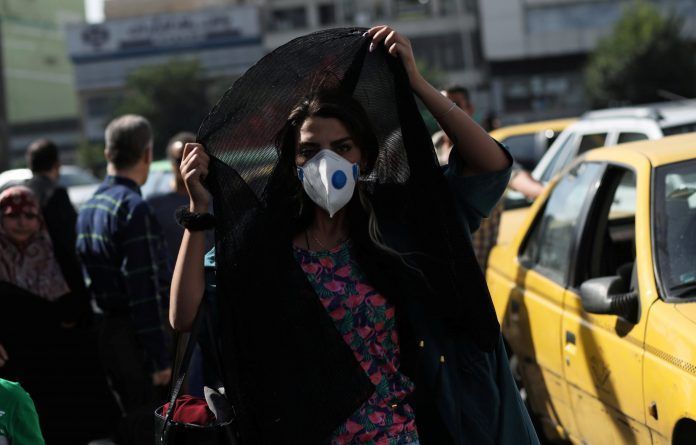
By Kayhan Life Staff
The administrators of the Imam Khomeini Hospital Complex (IKHC), the Shariati Hospital, and the Sina Hospital have reported an alarming rise in the number of coronavirus cases in the country, particularly among young people, the Iranian Students News Agency (ISNA) reports.
All three hospitals are affiliated with the Tehran University of Medical Sciences (TUMS). IKHC comprises the Vali-e-Asr Hospital, the Imam Khomeini Hospital, and the Cancer Institute.
“Unfortunately, we have seen a massive increase in the number of people testing positive with the coronavirus in the past 10 days,” Dr. Khosrow Sadeghniyat, the administrator of IKHC, was quoted by ISNA as saying. “The number of people diagnosed, admitted, and hospitalized at our hospital has tripled.”
“What concerns us most is that the number of critically ill coronavirus patients in our ICU [intensive care unit] is 40 percent higher than those on regular hospital floors,” Dr. Sadeghniyat noted. “The number of people in ICU who are on ventilators has also gone up.”
“We are worried about the increasing number of coronavirus patients aged under 30 in ICUs at our hospital,” Dr. Sadeghniyat said. “Many more of our colleagues, including doctors and nurses, have contracted the virus recently. Our medical staff has been working around the clock for the past four months. Their workload has only increased, but they continue to provide valuable service to the community.”
“The public should be more vigilant and follow stringent preventive measures to stop the spread of the disease,” Dr. Sadeghniyat added.
In comments reported by ISNA, Dr. Saeed Reza Mehrpour, the administrator of Shariati Hospital, said: “We are not in a good situation. The merciless coronavirus has viciously attacked us in the past 10 days. I was expecting a surge in September, not in June. It has been an onslaught. My colleagues and I are on the frontline of the fight against this virus. It poses a serious threat to everyone.”
“People should understand the gravity of the situation,” Dr. Mehrpour added. “I speak as someone who treats patients with COVID-19 every day. The infection is increasing at an alarming rate. The situation is critical. As a soldier who fights on the frontline, I urge everyone to take the threat seriously.”
In an interview with the Islamic Republic of Iran Broadcasting (IRIB) TV channel, Dr. Mohammad Talebpour, the administrator of Sina Hospital, said: “We experienced a massive surge in coronavirus cases in late February when we started our battle against the infection. The situation improved as we expected, enabling us to deep-clean the hospital up to three weeks ago. We do not know what has caused this recent wave of infection, which has disproportionately affected young people so severely.”
“The hospital had to open two wards with 50 additional beds to treat coronavirus patients,” Dr. Talebpour noted. “We also set up 20 beds in the emergency room and another 15 in ICU. They were all occupied within two weeks. The medical team is working around the clock again. I urge people to be more vigilant because this is an aggressive and highly infectious virus. Everyone must take the threat seriously and do their utmost to prevent it from spreading.”
“The situation is very different now from three months ago when hospitals had many empty beds that they could use to treat patients with the COVID-19,” Dr. Talebpour explained. “Most hospitals are full of patients who suffer from other illnesses than COVID-19. There are not enough beds for all the sick people in our hospitals. They are facing a crisis. We hope to ease the pressure through the public’s cooperation and help from the country’s officials.”
“Watching a loved one die is the most heart-wrenching tragedy anyone can ever experience,” Dr. Talebpour added. “All hospitals will soon be full of coronavirus patients if we do not heed the health warnings.”
This article was translated and adapted from Persian by Fardine Hamidi.

